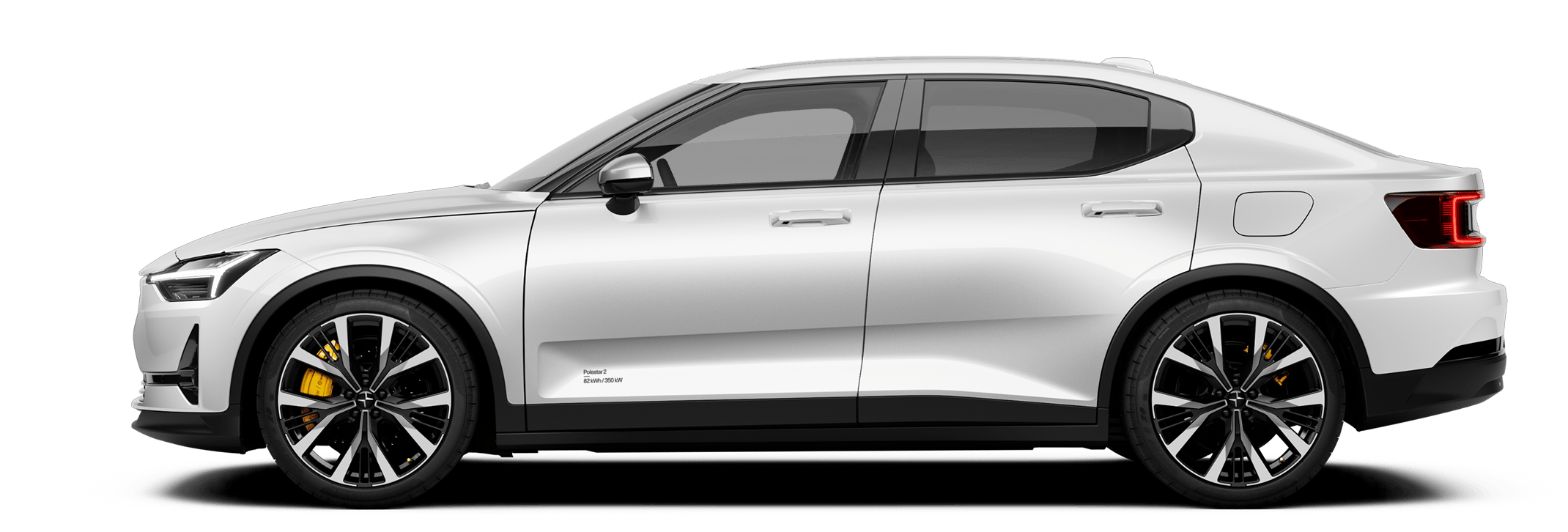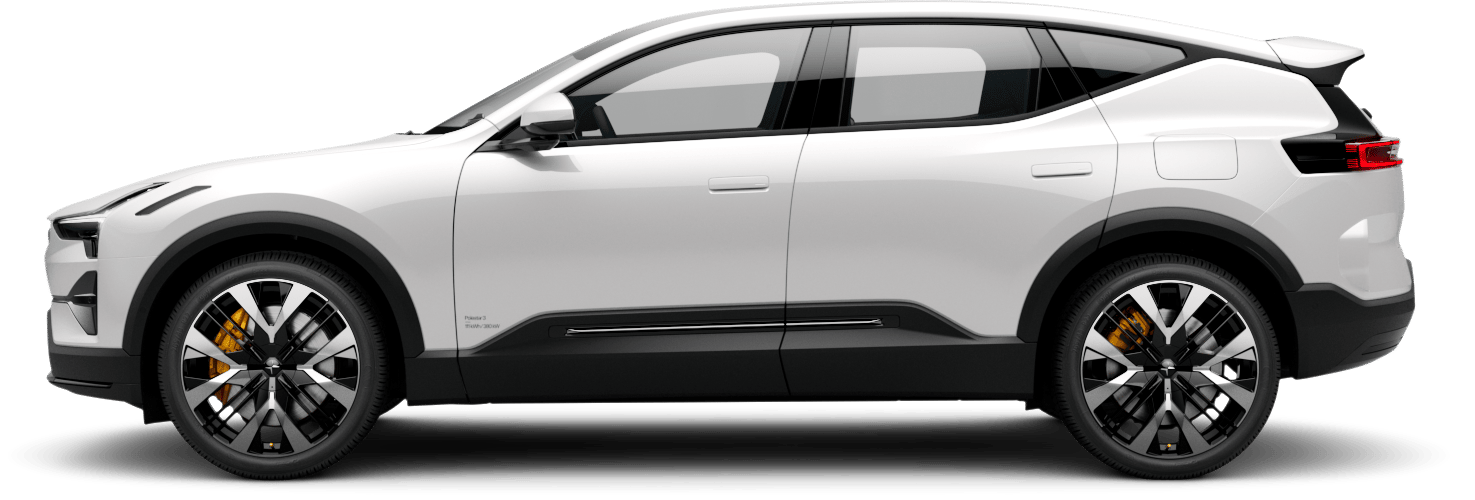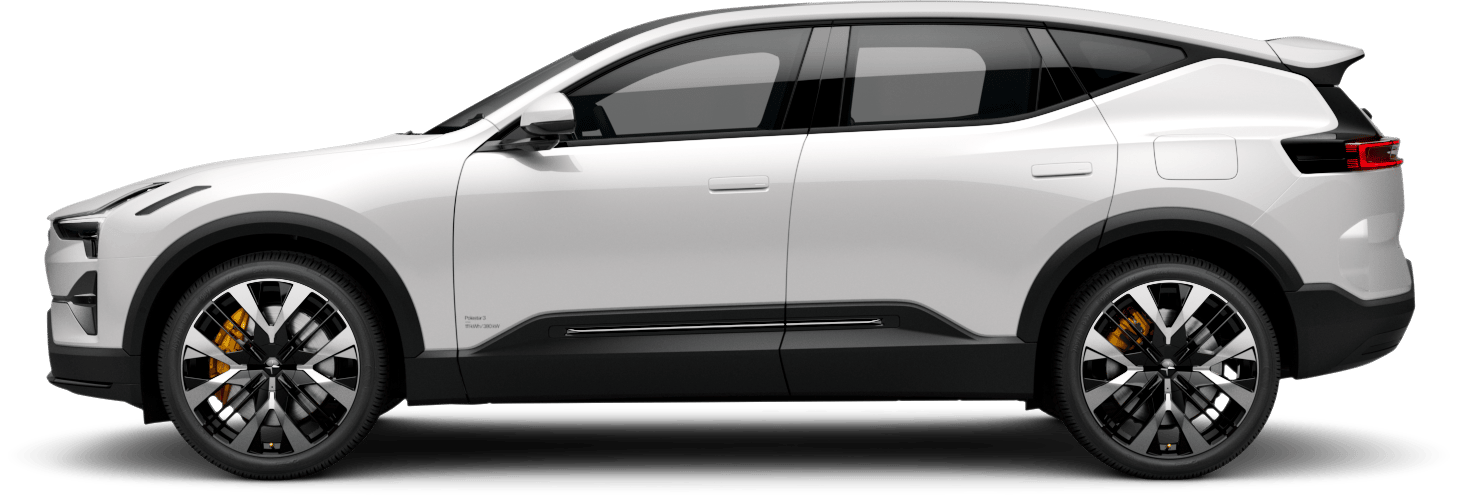Journal 12.1
Things are changing. The language of pistons, fuel injectors and catalytic converters is being replaced by the language of cells, kilowatt hours and electromagnets. Electric vehicles (EVs) are more capable and more in demand than ever before.
Electrification
For a lot of car manufacturers, EVs are a fraction of their product offering, flanked on both sides by models boasting internal combustion engines. To truly turn the tide, what’s required is dedication to the cause, fully embracing the electrified future by creating an electrified present. To go all in. Polestar is all in.
The future will be electrified. And Polestar is all in.
Electrification will be the new normal. What was once considered fringe technology that couldn’t possibly challenge the fossil fuel colossus is now poised to topple it.
The future will be electrified. And Polestar is all in.

A ‘pure electric’ company which is focused on doing things the right way... is the perfect place to develop EV cars.
The EV True Believer
For Hans Pehrson, Polestar’s head of Research and Development, this industry-wide trend is a welcome change, one that he and a small number of other engineers have been working towards for years. Pehrson could see the wide-ranging and multi-faceted applications of electric vehicles decades before the rest of the industry, and has been consistently pushing for EV normalisation. Unfortunately, the industry at large could not or would not understand the direction Pehrson wanted to take.
As the head of R&D for one of the most progressive EV brands in the world, Pehrson is finally in a position to affect the change that he’s been tirelessly championing for years. From Polestar’s perspective, there’s no better person to have at the R&D helm. From Pehrson’s perspective, there’s no better place to be. So what sets Polestar apart from the others?
“It’s a company fully focused on producing EV cars, but it also has access to a long history of automotive production, which is quite rare”, says Pehrson. “A ‘pure electric’ company which is focused on doing things the right way, which can also lean on the massive knowledge that Volvo has, is the perfect place to develop EV cars.”
Pehrson’s passion for EV has fuelled his work for decades, from his days as a hybrid/EV systems line manager working to develop electric propulsion systems (EPS), to his work with the London EV Company (LEVC, then known as the London Taxi Company) creating all-electric taxis. The C30 Electric, Volvo’s first fully electric car, was one of Pehrson’s creations and one that he still drives daily. It also netted him a Volvo Technology Award from former CEO Stefan Jacoby, an acknowledgement of the vehicle’s unique mix of technology and design.
Now, Pehrson is going all in, finally in the right place to fully realise his ideas, with a focus for his energy and enthusiasm: the Polestar 2. The first car from Polestar to be fully electric, it serves as the vanguard for all Polestar cars to come. Polestar is going all electric and never looking back.
This approach is an affirmation of Pehrson’s opinion that a change needs to happen. “We cannot continue the way that we do,” he claims. “I know why I go to work. We, as citizens of the planet, need to replace all cars.” One of the forces that drives Pehrson is this need to see an improvement in the way we manufacture and use vehicles, and it’s one of the reasons why the industry’s sudden shift towards electrification doesn’t feel like vindication for him, at least not yet.
The Polestar 2 battery isn’t just a battery. It also:
- reduces road noise by 3.7 dB
- increases torsional stiffness, leading to more responsive driving
- contributes to better balance and handling, due to longitudinal location in the car
A Multifaceted Battery
One way to encourage this change is to build EVs that people want to drive, which can offer avant-garde design and technology which performs, and then some. This is where the Polestar 2 comes in.
The battery, like all other components in the Polestar 2, optimises performance and elevates the car above other electric vehicles. The stiff and unyielding nature of the battery provides additional torsional stiffness to the Polestar 2. This increases handling and responsiveness, leading to an unparalleled driver experience.
The battery, like all other components in the Polestar 2, optimises performance and elevates the car above other electric vehicles.
It also solves a problem plaguing all electric vehicles: road noise. Electric vehicles are quiet. The reduced engine noise means that all noise from the outside is more clearly heard, making for a less comfortable atmosphere inside the car. This, in addition to the vibrations caused by differing road surfaces, is referred to as NVH (Noise, Vibration and Harshness) and is solved quite elegantly by the Polestar 2 battery. The battery replaces the material traditionally used for NVH optimisation, reducing road noise by 3.7 dB. The end result is a smooth and tranquil ride, whether you’re blasting down a highway or inching up to a campsite.
The Polestar 2 has been precisely engineered to be a seamless integration into modern life. Charging time, battery capacity, and range have all been optimised to make the Polestar 2 a versatile, powerful, eco-friendly car that is equal parts safe family car and avant-garde modern vehicle.

Everyone who gets into a Polestar 2 will be hooked on EV.
In-Car Interactions
One of the most vital aspects of a vehicle is its accessibility. It should be easy to drive, and equally easy to interact with. One of the most interesting features of the Polestar 2’s intuitive, unique, and precedent-setting User Interface (UI) is the display which comes to life as the owner approaches the car. The display lights up, showing the amount of charge in the battery, the amount of time left to a full charge, and the distance the car can drive, before the door is even opened. Once the driver sits down, the display lights up further, incrementally “waking up” to adjust to the driver’s presence. It is Polestar’s belief that the car should adjust to the driver, and not the opposite, which has been the case since people stopped relying on horses to pull their vehicles.


The new standard
This is precisely what needs to happen, according to Pehrson. He feels that once people experience an EV, they’ll never go back. “Everyone who gets into a Polestar 2 will be hooked on EV,” he claims.
They’ll be hooked, in part, because the Polestar 2 isn’t a car that screams its electric identity for all to hear. It’s a premium car, from a company known for avant-garde design and technology, and it just happens to be electric. Given that electrification will be the new normal, there’s no need to proclaim a car’s electric status.
The Polestar 2 will be the new standard for electric vehicles, which will themselves be the new standard. The change which Hans Pehrson and others like him have been waiting for is coming. And Polestar will lead the way.








